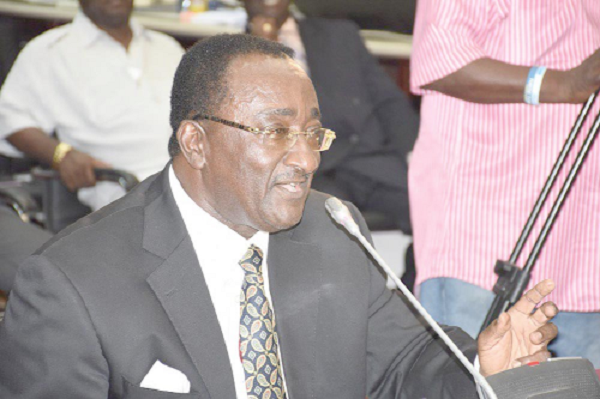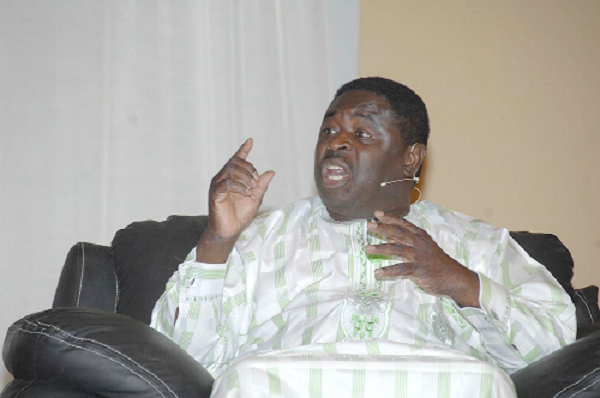
Major brainstorming on agric beckons
Agriculture, until recently, was one of the highest contributors to the country’s Gross Domestic Product (GDP).
This is because majority of the population are into farming, fishing and other forms of agriculture. Research has shown that about 60-65 per cent of the total population till the land or are engaged in fishing.
Unfortunately, the revenue government generates from agriculture has seen a decline and this has slowed down economic growth.
The country’s agricultural sector has declined steadily for the past seven years in terms of its contribution to Gross Domestic Product (GDP) as it declined from 31.8 per cent in 2009 to 29.8 per cent in 2010, 25.3 per cent in 2011, 22.7 per cent in 2012, 22.4 per cent in 2013, 21.5 per cent in 2014, and 19 per cent in 2015.
This has been blamed on several problems such as government policies, access to funding for farmers and fishermen, lack of machinery, technological expertise, training, storage facilities, transportation and ready market for agricultural produce.
As the country struggles to return the economy to the path of growth, agriculture has once again re-emerged as the focal point, as the current government has highlighted the sector as its priority area for the 2018 budget, which will, be presented to Parliament in a few weeks time.
It is for this reason that the GRAPHIC BUSINESS in partnership with Stanbic Bank is bringing together experts from the sector to discuss how the government can leverage agriculture to transform the economy.
Several policies have been put in place by past and succeeding governments to develop and revive the ailing sector but these policies have all been truncated at their initial stages.
The experts will, therefore, look at how governments planned investments for the sector in the budget will reap the necessary benefits.
Speakers at the breakfast meeting include the Minister of Food and Agriculture, Dr Owusu Afriyie-Akoto, former Deputy Minister of Agriculture, Dr Ahmed Alhassan Yakubu, the General Secretary of the Agricultural Workers Union (GAWU), Mr Edward Kareweh, and the Flag bearer of the Conventions People’s Party (CPP) in the 2012 elections, Dr Abu Sakara.

Ahead of the meeting, some stakeholders in the sector have already told the GRAPHIC BUSINESS about some of the challenges in the sector which they want the 2018 budget statement and government economic policies to address.
Access to credit
The Coordinator of the Ghana Trade and Livelihood Coalition (GTLC) said one of the critical issues that the budget should ensure is that many more farmers should be provided with cheaper credit.
“If the budget will have a project that will allow farmers to access lower sources of credit in the country, then it will enable the farmers to acquire their own inputs on a timely basis,” he stated.
He also urged the government to look at resourcing research and development institutions to enable them to come out with innovations that would help farmers to maximise their yields.
“Over the years, we have been given fertiliser and seed subsidies but still the yields are low so we need to resource the research and development institutions to come up with new technologies that will improve the fortunes of farmers,” he noted.
Market access
The Programme Coordinator of the Peasant Farmers Association, Ms Victoria Adongo, also advised the government to look at creating market access for farmers and not just concentrate on production.
“Its not only about production because much as we have challenges with production, there is also the challenge of lack of market,” she stated.
She said the budget must, therefore, come out with a plan that would ensure that when production was increased, there would be a market to take what would be produced so that the country didn’t end up recording post-harvest losses.
Deepening existing policies
Mr Edward Kareweh also called for the need to deepen the existing policies that was in the 2017 budget.
“However, this time round, we need a clear policy. If they want to increase production and investments in the sector in order to create jobs, there have to be a clear policy position on how the jobs are going to be created,” he said.
“We have to be able to identify the jobs and link the jobs to the particular programme. The Planting for Food and Jobs (PFAJ) initiative, for instance, is expected to create 750,000 jobs but we were not told how the jobs will be created,” he explained.
Mr Kareweh also warned the government not to rush to expand the number of registered farmers under the programme in the next budget.
He said it should not just be about increasing the numbers but making sure that the existing numbers who had registered were handled efficiently.